Music NFT Revenue Calculator
Calculate Your Potential Revenue
See how much you could earn with traditional streaming versus music NFTs with secondary royalties.
Revenue Comparison
Traditional Streaming
Estimated Revenue: $0.00
Based on 0 streams at $0.00/stream
Note: Streaming platforms typically pay 70-90% of revenue to labels, leaving artists with little revenue per stream
Music NFTs
Initial Revenue: $0.00
Secondary Royalties: $0.00
Total Revenue: $0.00
Based on 0 NFTs at $0.00 each
Plus 0% royalties on 0 secondary sales
For years, musicians have struggled to make a living from their art. Streaming services pay pennies per play, record labels take the lion’s share, and even big-name artists often feel like they’re working for someone else’s profit. But in 2025, a quiet revolution is happening-music NFTs are giving artists a new way to earn, connect, and own their work.
Keep More of What You Earn
Traditional music distribution is built on middlemen. Labels, distributors, streaming platforms-they all take cuts. By the time an artist sees royalty payments, often months later, they’ve lost 70% to 90% of the revenue. Music NFTs change that. When you sell a song or album as an NFT, you set the price. Fans buy directly from you. No label. No distributor. No streaming platform slicing up the pie.
On platforms like Sound.xyz and Royal, artists keep nearly all of the sale proceeds. One artist from Wellington sold 200 limited-edition NFTs of her new EP for $50 each. She walked away with $9,800 after gas fees. In the old system, that same EP on Spotify would’ve earned her less than $200 after platform fees and label splits.
And it doesn’t stop there. Every time one of those NFTs is resold on a secondary market, you get a cut. Smart contracts automatically send you 5% to 10% of the resale price-no paperwork, no waiting, no disputes. That’s something no record label ever offered. It’s passive income built into the music itself.
Turn Fans Into Partners
Music NFTs aren’t just about selling songs. They’re about selling access, experience, and ownership. Think of it like this: instead of fans just listening to your music, they become part of it.
Artists are now offering NFTs that come with real perks: backstage passes, private Zoom calls, early access to unreleased tracks, even co-writing credits on future songs. One indie producer in Auckland sold 50 NFTs that included a 15-minute voice message from him, personalized lyrics, and a digital certificate of ownership. Each NFT sold for $120. He made $6,000 in one day-and built a core group of 50 superfans who now help him promote every new release.
These aren’t just collectors. They’re investors. When a fan buys a royalty-sharing NFT on Royal, they’re not just buying a song-they’re buying a percentage of future earnings. If the track gets used in a movie, goes viral on TikTok, or is played in a nightclub, they earn too. That creates a powerful incentive for fans to help your music succeed. They’re no longer just listeners. They’re stakeholders.
Build a Community That Stays
Before NFTs, artists had no real way to know who their biggest fans were. Streaming stats are anonymous. Social media followers are often just noise. With NFTs, you see exactly who owns your music. You can message them directly. You can invite them to exclusive Discord servers. You can host live Q&As only for NFT holders.
On Audius, artists track their NFT ownership in real time. They see which fans hold multiple NFTs, which ones resell, and which ones never move. That data helps them tailor content. Maybe the top 10 holders get first dibs on tour tickets. Maybe the next single is released only to NFT owners for 48 hours. That kind of exclusivity turns casual listeners into loyal community members.
One band from Christchurch started offering NFTs that unlocked access to weekly live-streamed jam sessions. Fans who owned the NFT could request songs, suggest lyrics, and even vote on the next music video concept. Their Patreon dropped to zero-because the NFT community was doing everything Patreon promised, but better. And it was all owned by the fans themselves.

Unlock New Ways to Monetize
There’s more to music NFTs than selling tracks. Artists are turning their creative process into products.
Imagine selling the original stem files of a song as an NFT. A producer buys it, remixes it, and sells the new version. You get 7% every time. Or sell a limited-edition NFT that includes a handwritten lyric sheet, a studio recording session video, and a digital painting inspired by the song. These aren’t just collectibles-they’re art pieces with emotional value.
Some artists are even minting generative music NFTs-songs that change slightly each time they’re played, based on blockchain randomness. These tracks live on-chain, meaning they’ll never disappear, get deleted, or lose quality. They’re permanent. And because they’re unique, they hold value.
Platforms like Opulous let artists tokenize future royalty streams. You can sell a portion of your next album’s royalties as NFTs to raise money upfront-without giving up your label deal. It’s like crowdfunding, but with blockchain-backed contracts and automatic payouts.
Break Free From the Hits Machine
The traditional music industry rewards only the loudest, most viral acts. If your song doesn’t blow up in the first two weeks, you’re forgotten. But NFTs don’t care about trends. They care about connection.
A folk singer from Dunedin had 3,000 monthly Spotify listeners. He released 100 NFTs of his acoustic album, priced at $30 each. He sold out in 72 hours. He made $3,000. He didn’t need a playlist. He didn’t need radio play. He just needed 100 people who truly loved his music.
This is the real power of music NFTs: they let niche artists thrive. You don’t need millions of streams. You need a hundred true fans. And with NFTs, those fans can support you in ways they never could before-by buying, reselling, sharing, and even profiting alongside you.
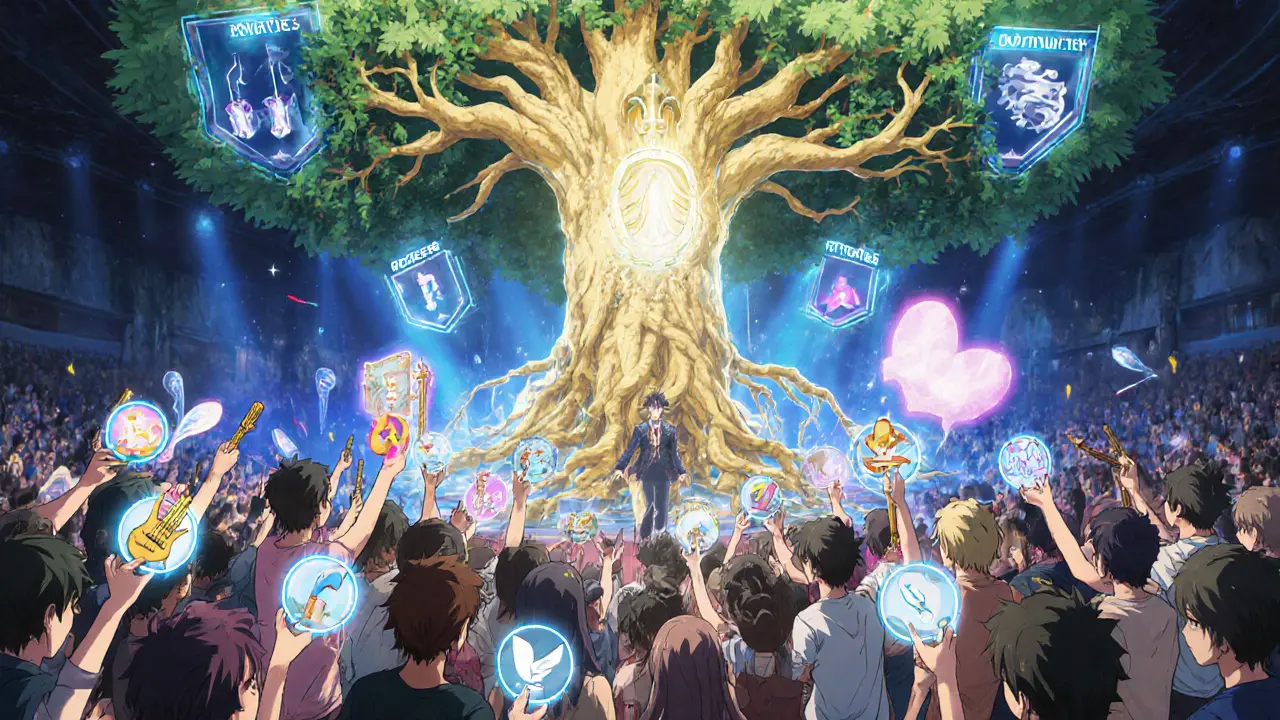
It’s Not Perfect-But It’s Progress
Let’s be honest: music NFTs aren’t magic. There are hurdles. Gas fees can be high on Ethereum. Some fans don’t know how to set up a wallet. The crypto market swings wildly. And yes, there are scams and overhyped projects.
But the tools are getting better. Platforms like Mint Songs now offer zero minting fees. Others let fans pay with credit cards instead of crypto. Onboarding is simpler than ever. Artists who take the time to explain the process-through short videos, step-by-step guides, or live demos-see far higher adoption.
The biggest mistake? Treating NFTs like a quick cash grab. The ones who win are the ones who treat them like a long-term relationship. They engage. They listen. They give back. They don’t just drop an NFT and disappear.
Where Do You Start?
If you’re an artist thinking about music NFTs, here’s how to begin:
- Choose a platform: Sound.xyz for direct music sales, Royal for royalty-sharing, Audius for decentralized streaming and community tools.
- Start small: Mint one or two tracks as limited editions. Offer a bonus like a personalized thank-you note or a behind-the-scenes clip.
- Build your audience first: Talk to your fans on Instagram, TikTok, or Discord. Let them know you’re launching something new.
- Explain it simply: Use plain language. Say, “Buy this NFT and you’ll get the song plus a private live session.”
- Reinvest: Use the earnings to fund your next project. Maybe it’s a music video, a tour, or better studio gear.
You don’t need to be a tech expert. You just need to care about your fans-and be willing to try something new.
What’s Next?
By 2026, we’ll likely see music NFTs integrated into live concerts, virtual reality stages, and even AI-generated fan remixes-all powered by blockchain. The line between artist and audience will blur even further.
One thing’s certain: the old system isn’t working for most musicians. Streaming won’t save you. Labels won’t save you. But your fans? They can. And with music NFTs, you finally have the tools to let them.
Can I make real money from music NFTs?
Yes-many artists are earning thousands, even tens of thousands, from NFT sales and royalties. Success depends on your fan base, the value you offer, and how you engage. One artist in New Zealand made $15,000 in three months from NFTs alone, including resale royalties. It’s not guaranteed, but it’s possible-and it’s happening right now.
Do I need cryptocurrency to sell music NFTs?
Not necessarily. Platforms like Sound.xyz and Mint Songs now let fans pay with credit cards. You still need a crypto wallet to receive funds, but the buyer doesn’t need to understand blockchain. The tech is hidden behind a simple checkout process.
What’s the difference between a music NFT and a Spotify stream?
A Spotify stream pays you fractions of a cent and gives you zero control. A music NFT gives you full control over pricing, ownership, and royalties. Fans buy it as a collectible, not just a song. And you earn every time it’s resold. One NFT sale can equal thousands of streams.
Are music NFTs just a bubble?
Some NFT projects were hype-driven and collapsed. But music NFTs that offer real utility-like royalties, access, and community-are here to stay. They solve real problems: unfair pay, lack of fan connection, and loss of control. The tech is improving, adoption is growing, and artists are building sustainable models. This isn’t a fad-it’s infrastructure.
How do I avoid scams when selling music NFTs?
Stick to well-known platforms like Sound.xyz, Royal, or Audius. Never share your private key. Don’t click random links promising “free NFTs.” Research the platform’s reputation. Read reviews from other artists. If it sounds too good to be true, it is. Legitimate platforms don’t ask for your wallet password.
Can I still sign with a label if I use music NFTs?
Yes. Many artists use NFTs alongside traditional deals. You can sell NFTs of unreleased tracks to fund an album, then sign a label deal for distribution. Some labels are even starting to invest in artist NFTs themselves. It’s not an either/or-it’s a hybrid future.



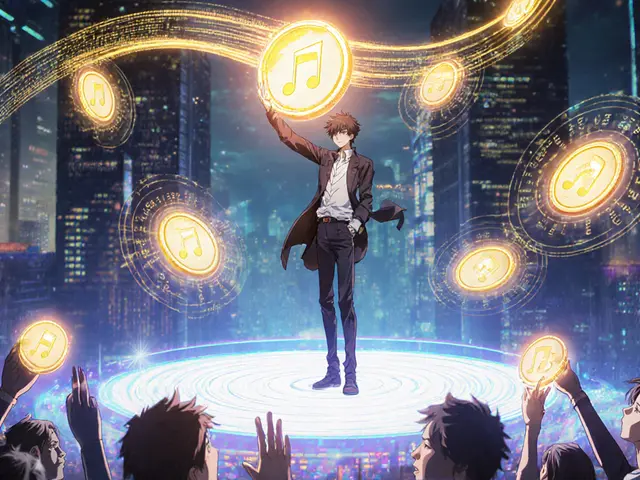
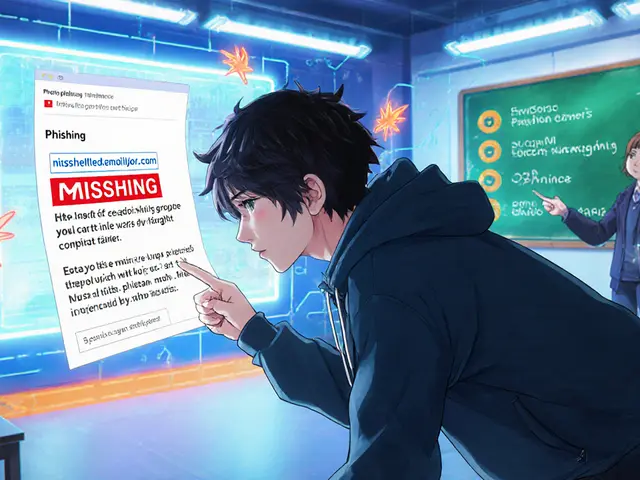
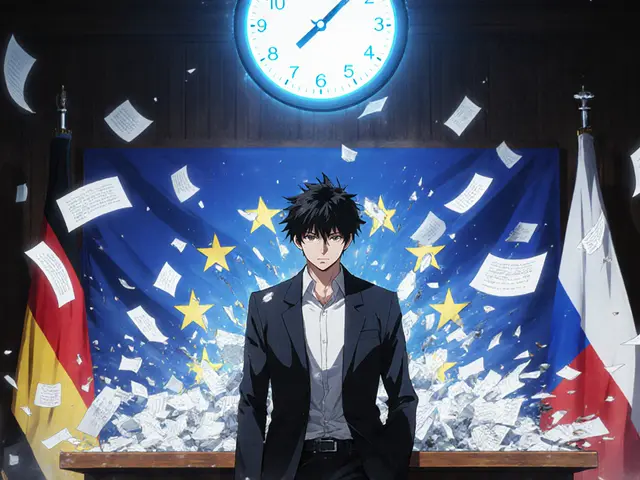
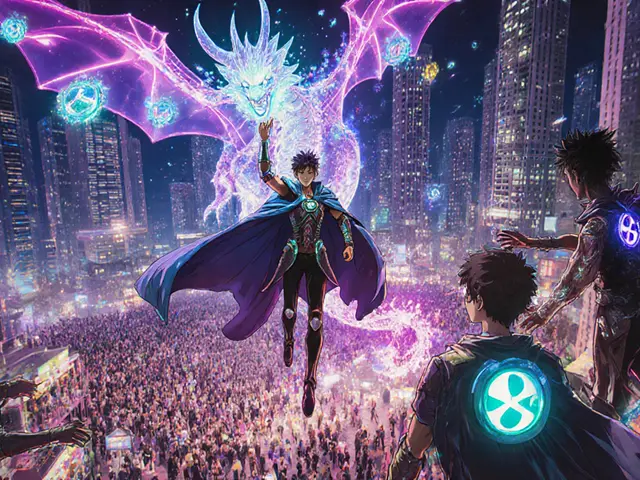
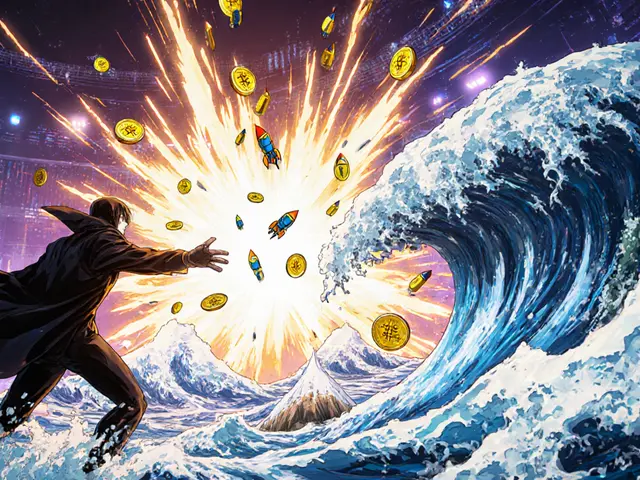
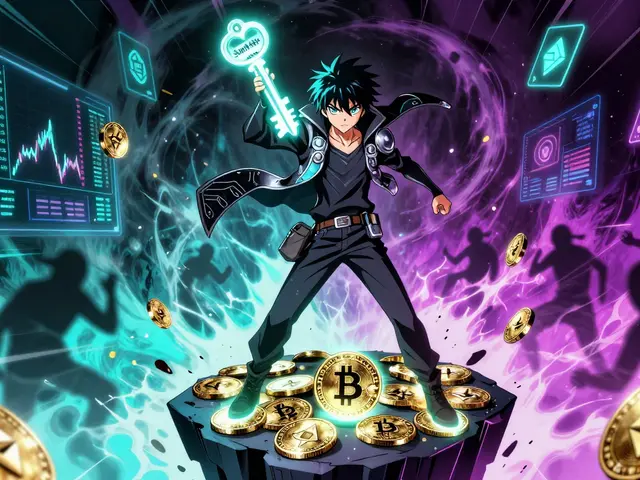
Comments (14)
Dave Sorrell
November 22, 2025 AT 20:02 PMMusic NFTs are a legitimate step forward for artists who want real control over their work. The ability to earn royalties on secondary sales is revolutionary-no other system offers that. It’s not about hype; it’s about sustainable income.
Jenny Charland
November 23, 2025 AT 05:21 AMLet’s be real-most artists will still starve. This only works if you already have a fanbase. It’s a luxury tool for the already-successful. The rest of us? Still grinding in basements.
Belle Bormann
November 23, 2025 AT 14:21 PMi think this is so cool but i dont get how to buy one 😅
jocelyn cortez
November 25, 2025 AT 02:25 AMMy cousin is a solo folk artist and she just sold 40 NFTs of her last album. She used the money to fix her amp and pay for a studio session. She didn’t need a label. She just needed 40 people who really heard her music. That’s powerful.
David Hardy
November 25, 2025 AT 20:16 PMTHIS. Finally. Someone gets it. The old system is dead. Long live the artists. 🚀
Tejas Kansara
November 26, 2025 AT 15:53 PMStart small. One track. One fan. One NFT. That’s how it begins.
preet kaur
November 27, 2025 AT 09:47 AMIn India, we’ve had underground artists sharing music via WhatsApp for years. NFTs just make it global. The heart is the same-connection. The tech just helps it scale.
Emily Michaelson
November 28, 2025 AT 22:21 PMI’ve seen artists who treat NFTs like a transaction fail. The ones who win are the ones who write back, host live sessions, and say thank you. It’s not a product. It’s a promise.
stuart white
November 30, 2025 AT 10:15 AMOh wow. Another crypto bro pretending he’s a cultural revolutionary. Let me guess-you bought a JPEG of a monkey and think you’re Picasso now? NFTs are just digital vanity. Real art doesn’t need blockchain to be valuable.
Sky Sky Report blog
December 1, 2025 AT 09:21 AMSome people are making this too complicated. If your music moves someone, they’ll find a way to support you. The tools are just tools. The heart is still what matters.
Tyler Boyle
December 1, 2025 AT 19:15 PMLet’s break this down statistically. The average indie artist earns $0.003 per stream on Spotify. To earn $1000, they need 333,333 streams. That’s roughly the population of a small city. Now, with NFTs, selling 100 units at $10 each? That’s 100 people. 100 real humans who chose to invest. That’s not a trend. That’s a paradigm shift. And the math doesn’t lie. Plus, the resale royalties create a long-tail revenue model that’s unheard of in any other creative industry. Record labels used to be gatekeepers. Now they’re optional. And the fact that platforms are now accepting credit cards means even your grandma could buy one if she wanted to. This isn’t about crypto zealots. It’s about redefining value in art. And the artists who adapt? They’re not just surviving. They’re thriving.
Lisa Hubbard
December 3, 2025 AT 11:41 AMI mean, sure, it sounds nice in theory, but what if the platform shuts down? What if the blockchain becomes obsolete? What if the fans get bored? It feels like building a house on sand. And don’t get me started on gas fees-those are just hidden taxes with extra steps.
Gus Mitchener
December 5, 2025 AT 08:38 AMThe ontological weight of the music NFT lies not in its tokenization but in its performativity within the decentralized ledger-it reifies the artist-audience relationship as a non-fungible act of co-creation. The blockchain doesn’t just record ownership; it enshrines intentionality. This is post-capitalist aesthetic labor made manifest.
asher malik
December 5, 2025 AT 14:16 PMHonestly? I don’t care if it’s blockchain or fax machines. If an artist can make rent and keep making music? That’s the win. The rest is just noise.